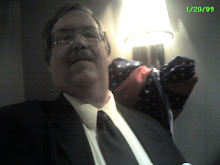Due to parental scheduling conflicts, I was schlepping my 5 1/2 year old grandson to athletic practice the other day. On our way home, he asked me, "Is God magic?"
This is a tough subject for me. Our family is almost entirely secular in outlook. (I don't know where the God talk is coming from (probably just the regional culture) but it has been popping up a lot lately.) I, personally, am a theistic agnostic. (I.e. I believe there is a god, but don't know what that implies for worship, prayer, etc.) However, I respect sincere religious belief, even when I don't comprehend it. Consequently when God comes up with the grandson, I treat the subject with respect and sympathy. (Sorry atheist chums!)
So I answered that God is supernatural. That God exists outside of the world that we can see or hear. This seemed to satisfy the boy. However, I can't say that it satisfied me.
It is true that our ordinary conceptions of God are supernatural, existing outside of the physical, empirically accessible world that we inhabit. However, religious believers insist upon the existence of miracles where God actually does act in the physical world. They, in fact, take these miracles as proof of their faith. The miracles they cite also tend to over-ride aspects of physical reality of which the believers disapprove. As an empiricist, I have to ask myself how that is different from magic, defined as some action in the physical world not capable of explanation in terms of physical causes? I am reminded of the Arthur C. Clark quote to the effect that any sufficiently advanced technology is indistinguishable from magic. In other words, our current understanding of the world would not provide us with an explanation. Anyone visiting the United States from the 15th Century would certainly consider much of what is daily commonplace to be magical.
Meditating about religion and magic while walking the dog the next morning, brought to mind Heinlein's Stranger in a Strange Land. There is an episode in the novel where the main character who was raised by Martians, finally appreciates the nature of his humanity. After this epiphany, his first impulse is to share the knowledge which he gained as a Martian foster child. Knowledge which is "magical" from the point of view of existing earth society.
Where does this take us? Remembering that I am economist, I fall back on a fundamental premise of my profession, "There is no such thing as a free lunch." (Incidentally, a favorite aphorism of Heinlein's) It is in human nature to seek "magical" solutions. We desperately want solutions that cause us little pain for much gain. The sad fact is that religion too often offers the "magical" solution as an alternative to the hard work of providing actual solutions. I can't reject religion out of hand as some of my friends do, to much of beauty and value has been created in service of religious impulse (e.g. Gothic cathedrals, Buddist stupas, Japanese Shinto shrines) for me to think religion irrelevant. But we sure could use a lot less "magical thinking."
Subscribe to:
Post Comments (Atom)

No comments:
Post a Comment